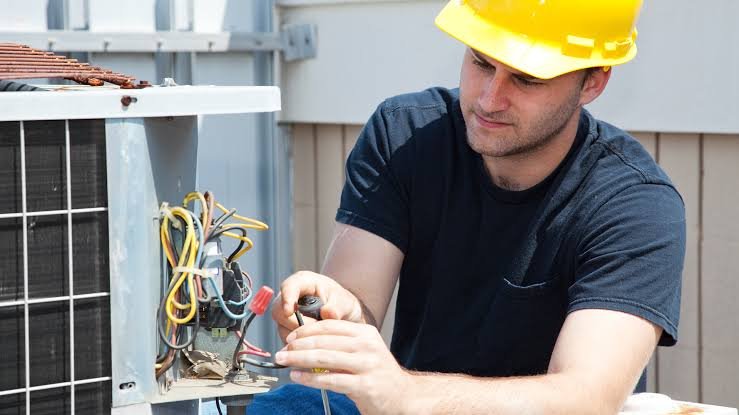Staying comfortable is mostly dependent on your air conditioner, especially in the summer. Air conditioners do, however, have a limited lifespan and will ultimately need to be replaced, just like any mechanical equipment. It’s critical to choose the right replacement unit at the right time to prevent malfunctions, higher energy expenses, and inefficient operation. The main tell-tale signs that it’s time to think about upgrading your air conditioner are listed below.
The Unit’s Age:
One of the most important things to consider when replacing your air conditioner is its age. The typical lifespan of an air conditioner is between ten and fifteen years. Your system is probably becoming less effective and more prone to malfunctions if it is on the verge of or has surpassed this range. In the HVAC sector, technology is also advancing quickly, so newer models provide better cooling, lower environmental impact, and increased energy efficiency. It could be time to start looking for a replacement if your air conditioner is older than ten years.
Regular Maintenance:
The frequency of repairs is another tell-tale clue that it’s time to replace your air conditioner. Periodic maintenance, like changing a filter or repairing a small component, is typical. However, the expenditures might mount up rapidly if you need costly or frequent repairs, particularly for main parts like the compressor or evaporator coil. https://www.socool.sg/aircon-capacitor-replacement/ can help you if all your AC need is a capacitor replacement and with major installations too. Purchasing a new, more dependable unit can end up saving you money over time rather than having to keep spending money on repairs. As a general guideline, apply the 50% rule: if the cost of repairs exceeds 50% of the price of a new system, it makes more sense to spend the money on a replacement.
Ineffective Operation:
Even with routine maintenance, older air conditioners eventually lose efficiency. Your air conditioner may not be operating at its best if you observe that some parts of your house are constantly warmer than others or if it doesn’t cool your house as well as it once did. Inconsistent temperatures, elevated humidity, and reduced airflow are all indicators that your unit is having trouble. A new air conditioner can drastically lower your energy costs because they are much more energy-efficient than older models. To get superior cooling while using less energy, seek out an air conditioner with a high Seasonal Energy Efficiency Ratio (SEER) rating. https://www.socool.sg/ can help you with all AC related tasks.
Energy Expenses:
Your air conditioner may be to blame if you’ve seen a sudden or gradual spike in your energy bills without an equal increase in consumption. Systems need more energy to cool your house as they get older since they have to work harder. Changing to a more recent, energy-efficient model can result in lower utility bills. This is especially true for units that were installed before 2006, since those may not have met the higher energy efficiency requirements that newer systems must fulfil.
Antiquated Cooling Agent:
If the R-22 refrigerant—also referred to as Freon—is used by your air conditioner, it’s a good sign that replacement is necessary. Because of its detrimental impacts on the environment, R-22 is being phased out and will no longer be imported or produced after 2020. It’s a wise decision to switch out an R-22 unit for one that uses R-410A or another environmentally friendly refrigerant to comply with environmental requirements and prevent growing refrigerant expenses.
Odd Sounds and Odors:
Strange or loud noises from your air conditioner, like screeching, slamming, or grinding, could be signs of serious internal issues. These problems could be caused by loose parts, worn-out parts, or a failed compressor—which is usually quite expensive to fix. Similar to how burning smells could be a sign of electrical problems, musty smells might be a sign of mold growth.

